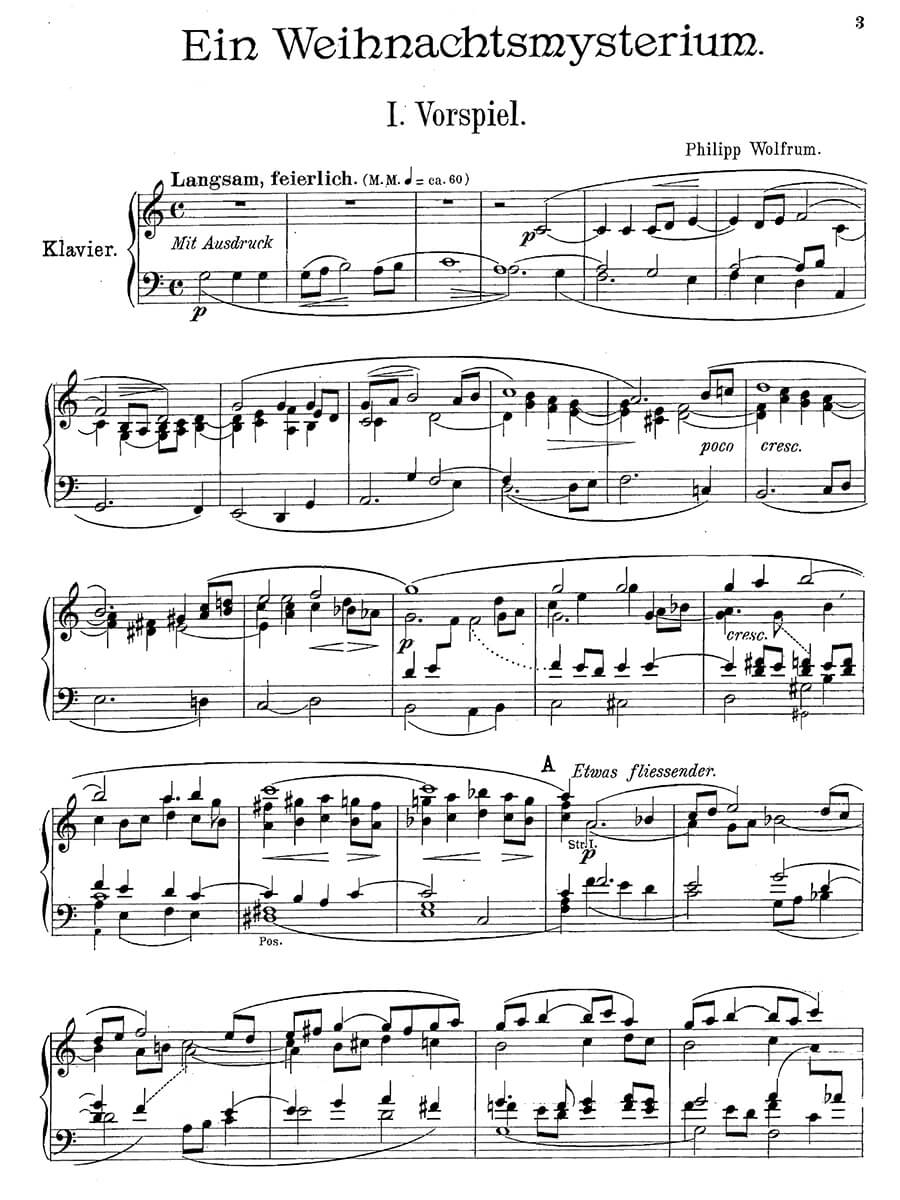Ein Weihnachtsmysterium op. 31 for soli, choir and orchestra (Vocal score with German text)
Wolfrum, Philipp
30,00 €
Preface
Wolfrum, Philipp – Ein Weihnachtsmysterium op. 31 for soli, choir and orchestra (Vocal score with German text)
after words from the Bible and plays of the people
for soli, choir and orchestra
Preface
Philipp Wolfrum is remembered today primarily as the founder and choirmaster of the Heidelberg Bachverein, an interpreter of works by Johann Sebastian Bach, and a musicologist. However, it is usually overlooked that Wolfrum was also active as a composer and enjoyed an extensive musical education. Born in Schwarzenbach am Wald in Franconia in 1854, Wolfrum learned to play the organ as a child from his father, a cantor. He attended the teachers’ seminary and worked as a teacher for a few years before taking a two-year leave of absence in 1876 to study at the Royal Academy of Music in Munich on a scholarship. Wolfrum received extensive study in organ playing with Josef Gabriel Rheinberger, choral singing and conducting with Franz Wüllner, and piano with Karl Bärmann. He also received composition lessons from the former, from which he graduated with top marks. After two years of study, Wolfrum again devoted himself to his work as a teacher in Bamberg. During this time he wrote his first composition, a sonata for organ, which was printed in 1879 as op. 1. In 1884 Wolfrum became an assistant music teacher at the theological seminary of the university in Heidelberg as well as organist and music director at the university church. A year later – by then he had also become head of the young Akademischer Gesangverein – he founded the Heidelberg Bachverein. In 1888 he was appointed associate professor of musicology, and in 1891 he submitted his dissertation to the University of Leipzig. By then Wolfrum was composing songs, choral works, organ works, and chamber music. This was followed in 1886 by Wolfrum’s first choral-symphonic work, Das große Halleluja (The great Halleluja) op. 22 for mixed choir and orchestra. In 1898 he turned to an even larger form: the oratorio. …
Read the preface of the full score > HERE
Score Data
| Edition | Repertoire Explorer |
|---|---|
| Genre | Choir/Voice & Orchestra |
| Specifics | Vocal score with German text |
| Printing | Reprint |
